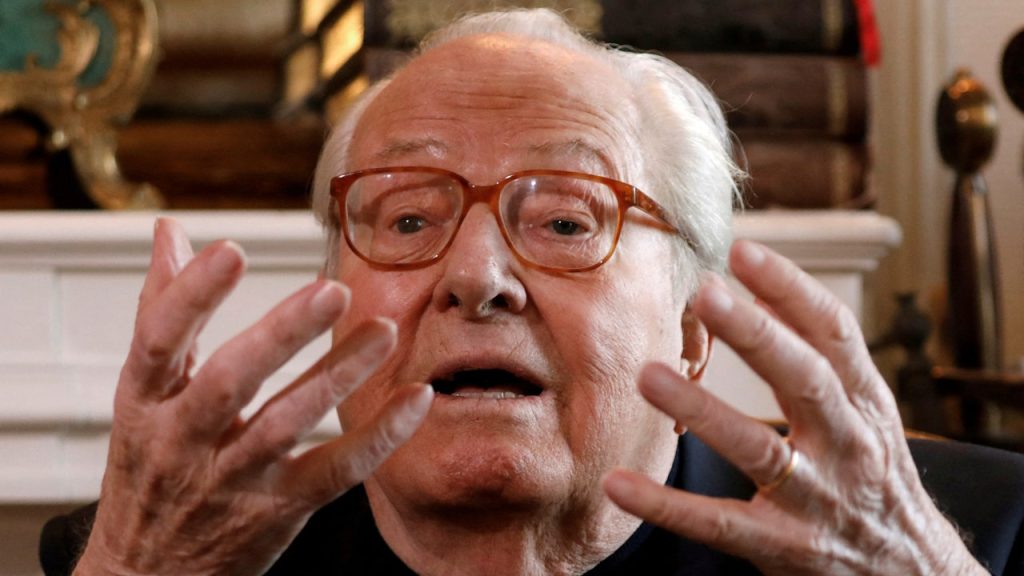Jean-Marie Le Pen, a towering yet controversial figure in French politics, passed away at the age of 96, leaving behind a complex legacy. His life, marked by both military service and political battles, shaped the landscape of French conservatism for decades. From his early involvement in colonial conflicts to his founding of the National Front, Le Pen’s trajectory was defined by a staunch nationalist ideology and a willingness to court controversy. His political career, spanning over four decades, was fueled by anxieties surrounding immigration, globalization, and the perceived erosion of traditional French values, themes that resonated deeply with a segment of the French populace. While he never achieved the presidency, his influence on French politics is undeniable, paving the way for the rise of the far-right and shifting the national conversation on issues of identity and security.
Le Pen’s military experience, including his time in the French Foreign Legion during the Indochina War and his involvement in the Algerian War, profoundly shaped his worldview. These experiences solidified his nationalist convictions and instilled in him a deep-seated belief in the importance of French sovereignty and cultural identity. His subsequent entry into politics was marked by a fierce defense of traditional values and a staunch opposition to immigration, positions that became central tenets of his political platform. His rhetoric, often inflammatory and provocative, garnered both fervent support and widespread condemnation, solidifying his image as a polarizing figure in French public life.
The National Front, the political party Le Pen founded in 1972, became a vehicle for his nationalist and anti-immigration agenda. Under his leadership, the party grew in influence, capitalizing on economic anxieties and social tensions to attract a growing base of support, primarily among working-class voters who felt marginalized by the political establishment. Le Pen’s controversial statements on immigration, globalization, and historical events like the Holocaust, however, drew widespread criticism and accusations of racism and antisemitism. Despite the controversies, Le Pen persisted, participating in five presidential elections, reaching the runoff in 2002 but ultimately losing to Jacques Chirac.
Le Pen’s 2002 presidential run marked a watershed moment in French politics. His unexpected success in reaching the second round of the election shocked the political establishment and signaled a significant shift in the French electorate. While he ultimately lost to Chirac, the result demonstrated the growing appeal of his nationalist and populist message, and the deep-seated anxieties that fueled it. This election highlighted the growing divide within French society, and the increasing resonance of anti-immigration and anti-establishment sentiment. Le Pen’s performance, though a defeat, legitimized the far-right as a political force and set the stage for its continued growth in the years to come.
The later years of Le Pen’s life were marked by a complex and often tumultuous relationship with his daughter, Marine Le Pen. Having inherited the leadership of the National Front, later renamed National Rally, Marine sought to modernize the party’s image and broaden its appeal. She distanced herself from some of her father’s more controversial statements and attempted to present a more moderate, though still firmly right-wing, platform. This effort at rebranding, however, led to a public rift with her father, culminating in his expulsion from the party he founded. Despite this estrangement, Marine Le Pen continued to build upon her father’s legacy, becoming a prominent figure in French politics and a serious contender for the presidency.
Even in death, Jean-Marie Le Pen remains a divisive figure. His legacy is one of profound contradictions, a complex tapestry of political influence, social upheaval, and familial discord. He undeniably shaped the trajectory of French politics, bringing issues of immigration, national identity, and working-class anxieties to the forefront of the national conversation. While he never achieved the presidency, his influence paved the way for the rise of the far right in France and laid the groundwork for his daughter’s political career. His life and legacy invite reflection on the evolving nature of French society, the enduring power of nationalist sentiment, and the complex interplay between personal ambition and political ideology.

